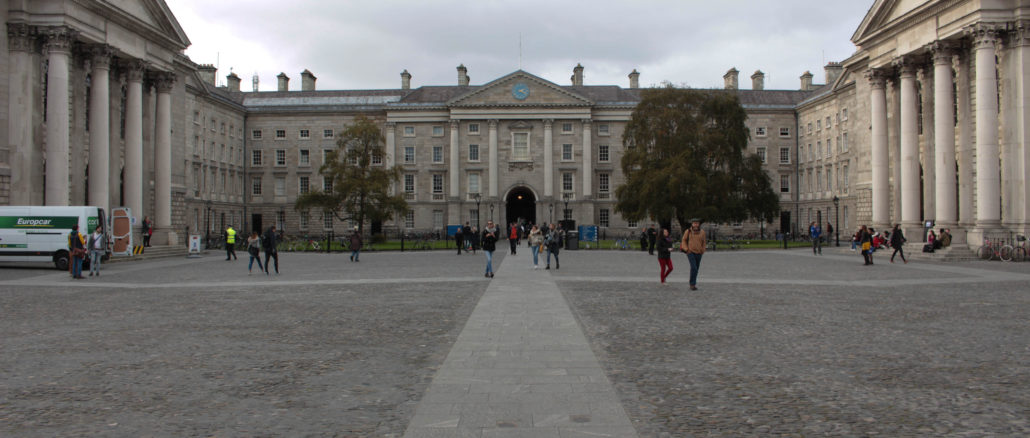
[dropcap]R[/dropcap]oughly 700 SIPTU members working in Trinity College Dublin are set to ballot for industrial and strike action in a dispute over the failure of being granted permanent contracts from management.
Among the 700 non-academic staff are library workers, security guards, maintenance staff and administrative staff.
SIPTU Sector organiser Karl Byrne spoke about the issue saying that “Our workplace representatives are dismayed and frustrated about the lack of any tangible progress with regard to a number of outstanding issues at the college.”
Byrne said that it is unacceptable to their members that the management is offering non-academic staff fixed term contracts of different lengths rather than permanent contracts.
According to Karl Byrne, SIPTU representatives believe that management in Trinity College Dublin (TCD) is offering these fixed term contracts as a means to avoid offering workers proper contracts of employment that would secure them with pensionable and permanent jobs.
According to SIPTU Education Sector President and Trinity College library shop steward, Jack McGinley, the issue of the non-replacement of permanent staff has been ongoing for the last two years.
“There has been a number of meetings between SIPTU representatives and management, as well as conciliation conferences involving the parties, but these have resulted in little progress on the issues in dispute”, McGinley said.
According to the SIPTU members, TCD management is in breach of Section 3.3.5 of the Lansdowne Road Agreement in relation to the delivery of services by directly employed workers.
“Many staff when they leave are not being replaced; nor are most maternity leaves and career breaks”, McGinley said.
He also said that a consultation procedure involving SIPTU members in TCD is now in progress.
“This process will continue for the next two weeks during which a ballot will also be conducted on industrial and strike action”, he said.
He added that industrial and strike action will commence if management fail to engage with them in regards to the issue and to find a suitable resolution to the problem.
Shirley Donlon
Image Credit:Graham McGrath



